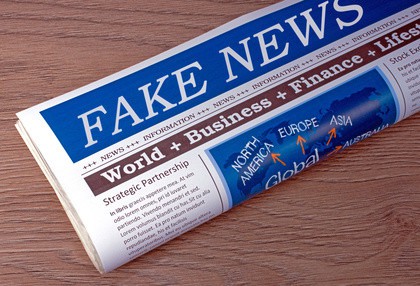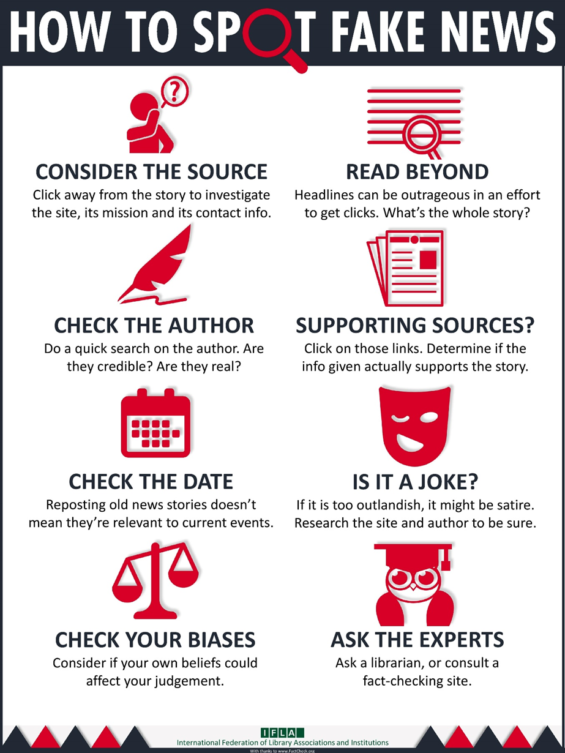Do you believe fake news? The chances are you do believe something that is untrue. We all believe what we want to believe. So I am going to give you a test which will help you determine whether you believe fake news.

Question 1: Did Neil Armstong walk on the moon?
The answer is yes unless you believe in the conspiracy theory that the moon landings were made up. OK, that was an easy question, unless you think the movie “Capricorn One” was actually a documentary.
Question 2: Do Russian “bots” spread fake news on social media?
According to many news sources, including respected publications, the Russians are responsible for spreading fake news. While the presence of bots is undeniable, a scientific analysis of Twitter shows that they are insignificant compared with humans spreading fake news. Bots do not spread anywhere near as much fake news as people do.
Question 3: Is Donald Trump the worst politician when it comes to fake news?
The answer very much depends on your personal views about what is good or bad. However, don’t go thinking that “fake news” is a Trump invention. The founding father of the modern USA, Benjamin Franklin, spread fake news about Native Americans in a bid to garner support for independence. Donald Trump is not the first leading American politician to use fake news.
Question 4: Is knife crime worse now than ever before in the UK?
A quick look at newspapers and magazines would have you believe this is the case. But it is not true. Knife crime in the UK is now at the same levels as it was in 2010.
Question 5: Did the UK Government use neuroscience to sway the public on the Brexit vote?
That might sound plausible, but I know it is fake because I made it up when I wrote this April Fool..!
What we believe depends on our personal views and ideas. If we think that a government is out to do everything for its own ends and wants to control the population, the moon landings conspiracy appears believable. If we trust our newspapers to deliver accuracy, we will think that what they say about Russian bots must be true. And if we dislike Donald Trump, then we’ll believe he is the worst perpetrator of fake news.
We believe fake news instinctively
A new study published in the journal Social Psychology and Personality Science shows that people have a reflex action when it comes to agreeing with fake information. When participants in the study were given false information, they did not question it if it already agreed with their pre-set position on things. This was more noticeable when the false material was about politics and social issues. The author of the research, Dr Michael Gilead, said: “This involuntary, ‘reflex-like’ tendency to consider things we already believe in as being true, might dampen our ability to think things through in a rational way.”
Years ago, this wasn’t too much of a problem. Fake news existed, but it wasn’t so easily spread. If a false story appeared in the “News of the World”, it stayed there. Now, if a false story is published by a respected publication (through no fault of its own), it is spread around the world within minutes, allowing millions of people to believe it instinctively.
How do you spot fake news?
It means that we are all going to be victims of fake news. You will see things online you will believe because you already have viewpoints that match the false information. So we all need to be careful. Thankfully, the International Federation of Library Associations has published a handy guide on how to check information for veracity.
Image by IFLA (http://www.ifla.org/publications/node/11174) [CC BY 4.0 (https://creativecommons.org/licenses/by/4.0)], via Wikimedia Commons

